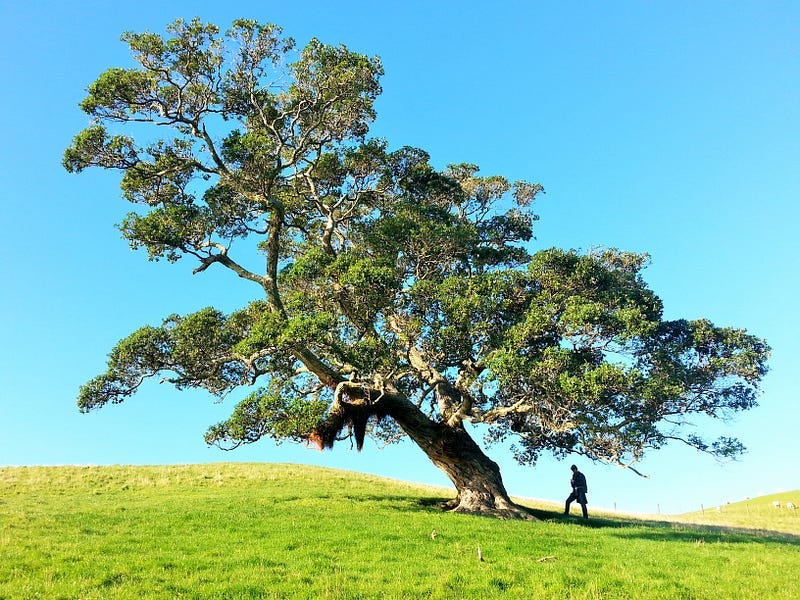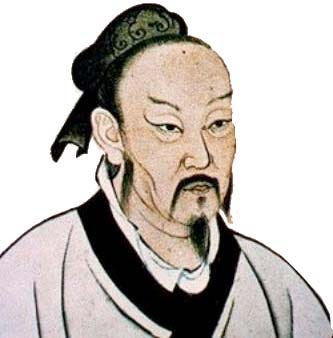The Uncarved Block
What Does it Mean to be Worthless?
A Beginner’s Guide to Taoism
What Does it Mean to be Worthless?

This is part 2 of my ongoing series to teach the foundations of the eastern philosophy and religion called Taoism. You can find the previous writings below this article.
My wife loves puzzles, but I do not. When we were first married, she tried to get me to help put them together. At first, it was a 1,000-piece puzzle. After I said no, she tried 500 pieces, but I wasn’t budging. She resigned to putting it together alone, only to discover she was ONE puzzle piece short. Where did it go? Who knows. The puzzle was now ruined and useless. But is it useless? What is useless?
In Tao Te Ching, the seminal ancient text of Taoism, there is a concept called the Uncarved Block. The phrase appears eight times in the text and refers to a person’s natural state. Translated from the Chinese character “pǔ” (pronounced like Winnie the “Pooh”), it can be defined as the following:
unworked wood
cut down, felled trees
nature; essence; intrinsic quality (compare English in the rough)
simple; plain; unadorned; unaffected

When looking at your everyday life, you may think you have become a better person. More knowledgeable, smarter, and wiser. But in Taoism, there is a concern we grow further away from our true nature. We lose ourselves as we grow older due to society, work, and other outside forces.
Lao-tzu, the legendary figure credited with the writing Tao Te Ching, recommends the following in chapter 28 ( J.H. McDonald, 1996)
The block of wood is carved into utensils
by carving void into the wood.
The Master uses the utensils, yet prefers to keep to the block
because of its limitless possibilities.
Great works do not involve discarding substance.
For example, when people are born, they are perfectly in tune with nature. Babies don’t have words to define their surroundings, yet they know their parents. They can’t hold a conversation, yet they communicate their desires with everyone around them. Anxiety over the future or depression over the past isn’t possible for them. These problems are taught to us later in life as we learn our native language.
Here, the baby represents us in our uncarved state — a limitless person whose potential expands the entire universe. Anything is possible, if given the opportunity, and whos potential only decreases with knowledge and age.
Another Chinese philosopher, Zhuangzi, also wrote of the concept of the uncarved block. Zhuangzi lived sometime before 286 BCE, when it’s believed he died. Unlike Lao-tzu, most scholars believe Zhuangzi existed and credit him for his work. A humorous and quick-witted writer, some prefer his storytelling method to the philosophical poetry of Lao-tzu.

One of my favorite stories Zhuangzi wrote is the following:
Huizi said to Zhuangzi, “This old tree is so crooked and rough that it is useless for lumber. In the same way, your teachings have no practical use!”
Zhuangzi replied, “This tree may be useless as lumber, but you could rest in the gentle shade of its big branches or admire its rustic character. It only seems useless to you because you want to turn it into something else and dont know how to appreciate it for what it is. My teachings are like this.”
As is so perfectly explained, nothing is useless. Every object can be utilized, but our cultural and personal ability to define the world around us limits our expectations and actions. For example, in Zhuangzi’s story, the tree won’t make a serviceable boat, table, or chair because the wood is too crooked and rough. But Huizi failed to see the tree as useful since he only thought about what it could become.

For three years, if you were a Tao-Zen Exchange Discord server member, you might have seen the screename “The_Uncarved” in chat. I love the concept of the uncarved block so much that I used it as my username! Growing up with a famous first and last name (Patrick Stewart), I didn’t want those stereotypes following me into a new community. I wanted people to see who I was from my words and actions and not who I had been because of a silly coincidence with my name. Sometimes, we have to unlearn our lessons to see the true nature of our surroundings. Even when what we must forget is who we have become.
When we lose ourselves, we find ourselves.
Part 1 — Nature’s Powerful Way
I hope you enjoyed part 2 of our beginner’s guide to Taoism! If you enjoy Patrick’s articles and want to read more, please see his website for his book of poetry, follow him on Mastodon, or clap, comment, and subscribe! You can also Buy Him A Coffee or become a patron on Patreon.




